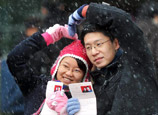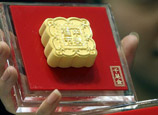
Though the rule was scrapped in 2010, "more and more people had already formed the stereotyped thinking that any dissatisfaction they feel about the treatment has something to do with the hospital, and that they will get compensation as long as they draw attention to their dissatisfaction," Deng said.
As a lawyer, Deng said he has seen different ways of drawing attention: Not just filing complaints and lawsuits, but brawling, stalking and threatening.
Deng Bingbin, an intern in a public hospital in Beijing, believed the high expectations comes from a lack of knowledge.
"Some regard paying for medical treatment as paying to get a cabbage in the market," she said.
"However, it is not cabbage. One cannot simply expect that their diseases will be cured as long as they pay for the treatment. One cannot purchase life and health."
"I hope the public can get more information about what doctors can do when they fall ill, which is limited. The most important thing is to take care of yourself and watch out for their own health," the intern added.
What's more, the inclination to blame the hospital has helped nurture some professional "hospital troublemakers", groups of people take advantage of the dissatisfaction of the patients and their family, the intern said.
"Because of them, sometimes in disputes, a hospital gives compensation even when there is nothing much to compensate for, in a compromise for peace. I rather fear that I will meet them when I begin to work as a doctor," said the 23-year-old, though she insisted that the medical disputes and even violent cases have not deterred her from pursuing her chosen career.
However, such cases have deterred some doctors from taking risks for their patients, said Lu Hai, of Tongren Hospital.
"Some doctors will not try to do better even when they can. When they feel they are not so sure of the treatment, they will push their patients away to another doctor or another hospital, even persuade them to give up treatment," he said.
"After these kinds of dispute and murders, even I feel the sometimes delicate and subconscious change in my attitude toward patients —like I can't persuade myself to be truly nice."
A survey conducted by five college students in Central China's Hunan province got similar results.
















 "Food is the paramount necessity of life", so neither trivial nor minor is our daily eating.
"Food is the paramount necessity of life", so neither trivial nor minor is our daily eating.


![]()
